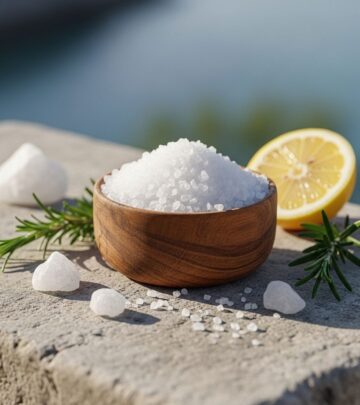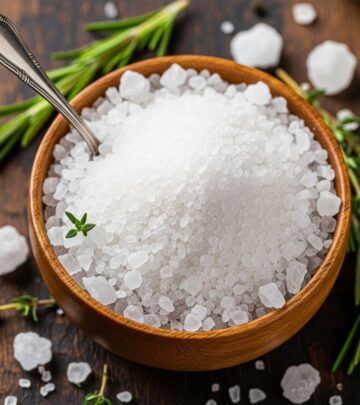Effective Ways to Get Rid of Sulfur Burps: Remedies, Prevention, and Medical Insights
Simple changes to your routine can help calm digestion and banish foul odors.

How to Get Rid of Sulfur Burps: Comprehensive Guide
Sulfur burps—burps that smell like rotten eggs—can be an unusually embarrassing and uncomfortable problem. While often harmless and temporary, chronic or severe cases can disrupt daily life and may be a sign of an underlying medical issue. This article will guide you through the causes, effective home remedies, dietary recommendations, medical treatments, prevention strategies, and frequently asked questions to ensure you are fully informed about how to manage and prevent sulfur burps.
What Are Sulfur Burps?
Sulfur burps are burps that have a distinct foul odor, similar to the smell of rotten eggs. This odor is caused by the presence of hydrogen sulfide gas in the digestive tract, which is released during the digestive process or as a result of certain foods and health conditions.
What Causes Sulfur Burps?
Several factors can lead to the production of hydrogen sulfide and ultimately, sulfur burps:
- Foods Rich in Sulfur: Such as eggs, meat, cruciferous vegetables (cabbage, broccoli, cauliflower), garlic, and onions.
- Digestive Disorders: Conditions like irritable bowel syndrome (IBS), gastroesophageal reflux disease (GERD), lactose intolerance, and celiac disease can contribute to sulfur burps.
- Bacterial or Parasitic Infections: Infections from Helicobacter pylori (H. pylori) or Giardia lamblia can cause sulfur burps, often accompanied by diarrhea.
- Lifestyle Habits: Swallowing air from eating too quickly, chewing gum, smoking, or drinking carbonated beverages can increase gas and lead to burping.
- Food Intolerances: Lactose intolerance or difficulty digesting certain carbohydrates can promote sulfur gas production.
- Medications: Certain supplements and medications may affect digestion and increase burping.
Symptoms Associated with Sulfur Burps
Sulfur burps may occur alone or along with other symptoms, which can help identify the underlying cause:
- Abdominal cramps or discomfort
- Bloating and flatulence
- Diarrhea or constipation
- Nausea and vomiting
- Heartburn or indigestion
- Bad breath
- Loss of appetite in severe cases
Home Remedies for Sulfur Burps
Many cases of sulfur burps can be managed at home using simple remedies designed to reduce gas, soothe digestion, or neutralize odor:
- Stay Hydrated: Drink plenty of water throughout the day to help flush toxins and excess gas from your system.
- Eat Slowly and Mindfully: Chew food well, eat at a measured pace, and avoid talking while eating to minimize swallowed air.
- Herbal Teas: Peppermint, ginger, green tea, and chamomile tea are known to soothe the digestive system and may reduce both gas and odor.
- Honey: Small amounts of natural honey have been suggested in some traditions to help neutralize stomach acids and reduce burping.
- Avoid Trigger Foods: Experiment with eliminating sulfur-rich foods and processed products that trigger your symptoms.
- Probiotics: Consuming probiotic foods or supplements can help balance gut bacteria, support digestion, and reduce odor-causing gas.
- Bland Diet: When experiencing sulfur burps with diarrhea or stomach upset, focus on bland, easy-to-digest foods such as rice, toast, bananas, noodles, and applesauce.
- Limit Dairy: If lactose intolerance is suspected, avoid dairy products to reduce gas formation.
Dietary Adjustments to Prevent Sulfur Burps
Changing your dietary habits is one of the most effective ways to prevent sulfur burps. Consider the following adjustments:
- Reduce intake of foods high in sulfur (eggs, red meat, broccoli, cabbage, legumes, onions, garlic)
- Avoid carbonated drinks and alcohol, which can increase gas and burping
- Try an elimination diet — temporarily remove suspect foods and gradually reintroduce them to identify triggers
- Increase fiber intake gradually to support regular digestion but avoid excessive amounts that cause excessive gas
- Eat small, frequent meals rather than large heavy meals
- Evaluate for FODMAP sensitivity — consult a specialist for a structured low FODMAP diet trial if GI symptoms are persistent
Medical Treatments and Medications
If home remedies are ineffective or sulfur burps are persistent and significantly impact your quality of life, consult a healthcare professional. Medical treatments may include:
- Antacids: Over-the-counter medications like Tums, Pepcid AC can neutralize stomach acid and reduce belching and indigestion.
- Gas-relief Medications: Simethicone-based products such as Gas-X relieve bloating and gas discomfort.
- Bismuth Subsalicylate: Products like Pepto-Bismol can bind hydrogen sulfide gas and reduce odor.
- Lactase Enzyme Supplements: Help those who are lactose intolerant digest dairy without producing excess gas.
- Alpha-galactosidase Products: (e.g., Beano) to aid in breaking down complex sugars in beans and vegetables.
- Prescription Medications: If infection is diagnosed (e.g., H. pylori, Giardia), antibiotics or antiprotozoals may be necessary.
- Probiotics: Prescription-strength probiotics may be recommended to support a healthy gut microbiome, especially after antibiotic use.
Always consult with a healthcare provider before starting new medications or supplements.
Preventive Measures for Sulfur Burps
Adopting healthy habits and practicing good digestive hygiene can minimize the risk and frequency of sulfur burps:
- Chew Food Thoroughly: Proper chewing aids digestion and decreases the amount of air swallowed.
- Avoid Chewing Gum and Hard Candy: These habits can lead to excessive air swallowing, increasing gas production.
- Quit Smoking: Smoking increases the amount of air that enters the digestive tract.
- Eat Regular, Small Meals: Oversized meals take longer to digest and can create more gas.
- Exercise Regularly: Physical activity stimulates digestion and reduces bloating.
- Manage Stress: Stress and anxiety can trigger digestive disturbances including excess burping.
- Hydrate Well: Sufficient water intake promotes healthy digestion and helps dilute digestive acids.
When to See a Doctor
Occasional sulfur burps are rarely a cause for concern. However, medical attention is needed if you experience any of the following:
- Burdensome symptoms that do not improve with home treatment
- Burping accompanied by severe abdominal pain, persistent vomiting, or diarrhea
- Unintentional weight loss or difficulty swallowing
- Fever or signs of infection
- Symptoms lasting more than a few days or interfering with daily life
Persistent or severe symptoms may indicate an underlying digestive disorder, bacterial or parasitic infection, or in rare cases, more serious health conditions.
Frequently Asked Questions (FAQs)
What are sulfur burps?
Sulfur burps are burps that smell like rotten eggs due to the presence of hydrogen sulfide gas in the digestive tract.
What foods commonly cause sulfur burps?
Foods high in sulfur such as eggs, red meat, dairy, garlic, onion, brussels sprouts, broccoli, and cabbage are frequent culprits.
Is it normal to have sulfur burps?
Occasional sulfur burps caused by dietary intake or mild digestive upset are normal. Frequent or persistent symptoms may need medical evaluation.
How can I quickly relieve sulfur burps at home?
- Drink extra water
- Use peppermint or ginger tea
- Avoid trigger foods
- Eat slower and avoid talking while eating
What are the signs that sulfur burps are caused by a medical problem?
If burping is accompanied by other symptoms such as severe pain, fever, vomiting, unintentional weight loss, or persists for more than a few days, it may indicate an underlying medical problem requiring professional care.
Can probiotics help sulfur burps?
Yes, probiotics can support digestive health and reduce gas by balancing gut bacteria. They can be especially beneficial if your symptoms follow antibiotic use or result from gut dysbiosis.
What medications are available for sulfur burps?
Antacids, simethicone, bismuth subsalicylate (Pepto-Bismol), lactase, and, in some cases, prescription antibiotics or antiprotozoals if infection is present.
Table: Foods High in Sulfur Content
| Food Group | Examples |
|---|---|
| Vegetables | Broccoli, Cabbage, Cauliflower, Brussels Sprouts, Asparagus |
| Protein Sources | Eggs (especially yolks), Red Meat, Poultry, Fish |
| Others | Onions, Garlic, Dairy Products, Legumes |
Quick Tips for Daily Management
- Monitor your diet: Try keeping a food diary to track individual triggers.
- Start your day with warm water or herbal tea: This can stimulate digestion gently.
- Introduce new foods gradually: Allow your digestive system time to adapt.
- Ensure regularity: Constipation can increase the risk of gas buildup and burping.
- Consult a dietitian: For chronic or complex symptoms, professional dietary support can help.
References
- Oshi Health: What are sulfur burps? Common causes and how to get rid of them.
- MedicalNewsToday: Sulfur burps: Remedies, treatment, and causes.
- Healthline: Sulfur Burps: Causes and Treatments.
- Manhattan Gastroenterology: Sulfur Burps and Diarrhea.
References
- https://oshihealth.com/sulfur-burps/
- https://www.medicalnewstoday.com/articles/319392
- https://www.healthline.com/health/sulfur-burps
- https://www.manhattangastroenterology.com/sulfur-burps-and-diarrhea-what-do-these-symptoms-mean/
- https://www.healthline.com/health/how-to-get-rid-of-sulfur-burps
- https://metrogi.com/why-do-i-get-sulfur-burps-and-how-can-i-prevent-them/
- https://www.simpleonlinepharmacy.co.uk/health-advice/weight-loss/mounjaro/sulphur-burps-mounjaro/
- https://www.mayoclinic.org/diseases-conditions/gas-and-gas-pains/in-depth/gas-and-gas-pains/art-20044739
Read full bio of medha deb












